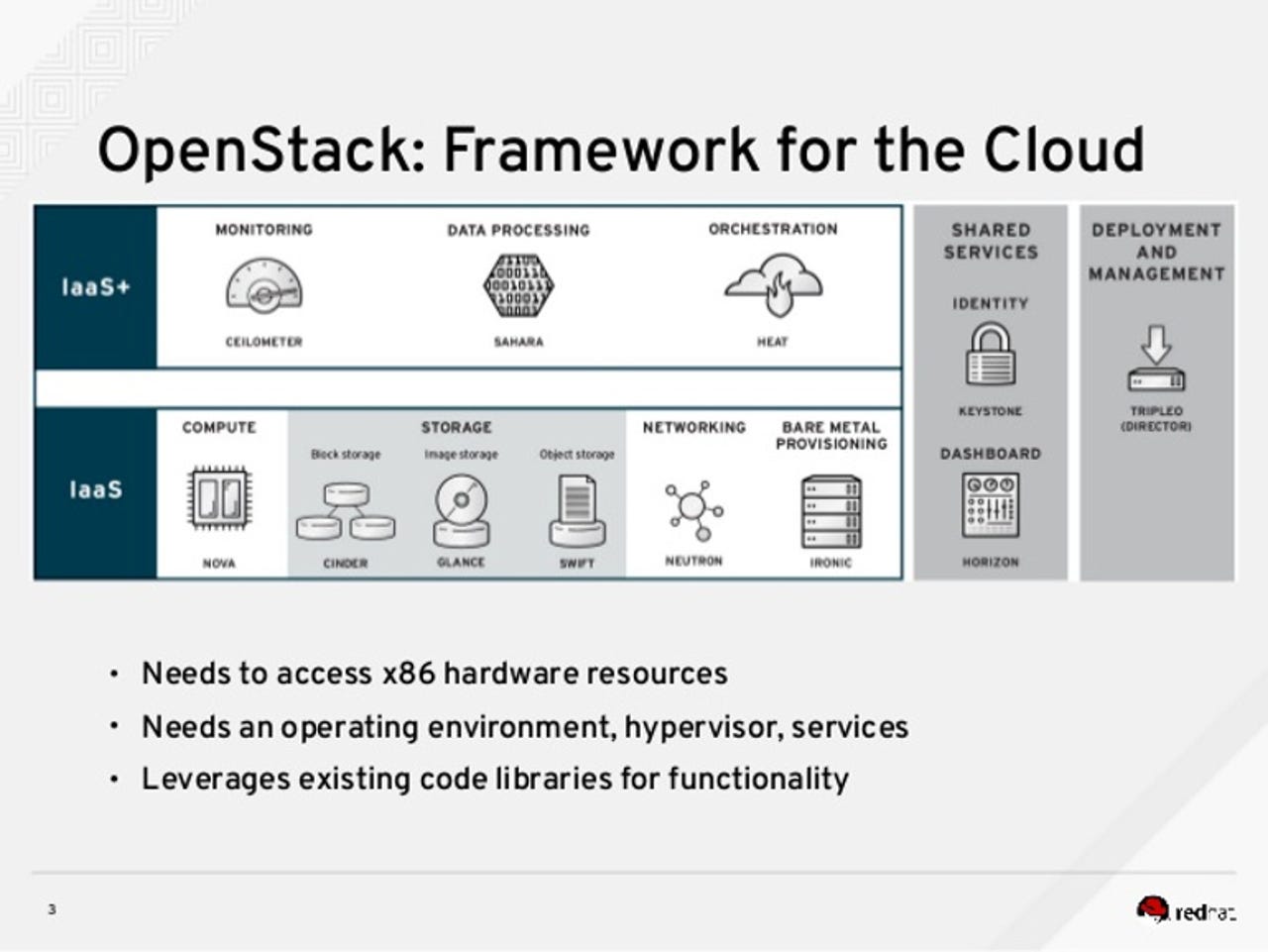Red Hat still plans on being The OpenStack company

Of course, you think of Red Hat as being The Linux company. Everyone does. But, if Red Hat has its way, you'll think of them as The cloud company. Red Hat is showing once more its intention to be the king of the OpenStack hill with its release of Red Hat OpenStack Platform (RHOP) 9.

Red Hat has big plans for its OpenStack distribution.
This is a highly scalable, open-source Infrastructure-as-a-Service (IaaS) platform. It's designed to deploy, scale, and manage private cloud, public cloud, and Network Functions Virtualization (NFV) environments. It's based on the OpenStack community "Mitaka" release. The focus of this release was to make the notoriously hard-to-install OpenStack easier to deploy.
Cloud
RHOP 9 is based on Red Hat Enterprise Linux (RHEL) 7.2. This version of Red Hat's flagship operating system was designed to make it more cloud and container friendly than ever. RHOP also features Red Hat Ceph Storage 2 for software-defined storage and Red Hat CloudForms for cloud management and monitoring.
With Red Hat Ceph, RHOP 9 can handle 64TBs of free object and block storage for customers evaluating a robust, scale-out cloud storage solution.
CloudForms provides inherent discovery, monitoring, and deep inspection of OpenStack resources. This enables you to make policy-based operational and life-cycle management decisions over all its infrastructure components, and virtualized workloads. Red Hat didn't address how this will fit in with its recent purchase of Ansible, the popular DevOps tool.
The top features in this release are:
- Automated updates and upgrades with Red Hat OpenStack Platform Director -- Red Hat enables users to upgrade their OpenStack deployments through the automation and validation mechanisms of the Red Hat OpenStack Platform Director. This, in turn, is based on the upstream community project TripleO (OpenStack on OpenStack). This in-place upgrade tool offers a simplified means to take advantage of the latest OpenStack advancements, while preventing downtime for production environments.
- Live migration improvements and selectable CPU pinning from OpenStack Compute (Nova) -- The Compute component now offers a faster and enhanced instance of the live migration process, helping system administrators to observe its progress and even pause and resume the migration task. A new CPU pinning feature can dynamically change the hypervisor behavior with latency-sensitive workloads such as NFV, enabling more fine-grained performance control.
- Tech Preview of Google Cloud Storage backup driver in OpenStack Block Storage (Cinder) -- As part of Red Hat's continued collaboration with Google, new disaster recovery policies in RHOP 9 now extend to the public cloud using integrated drivers created for Google Cloud Storage. This new feature enables more secure backups of critical data across the hybrid cloud.
Besides looking for private and hybrid IaaS cloud customers, Radhesh Balakrishnan, the general manager of Red Hat's OpenStack initiative, is looking to expand to telecoms. "With this release of Red Hat OpenStack Platform 9, we continue to add capabilities to meet the production requirements of enterprises rolling our private clouds and service providers deploying NFV."
Red Hat is also looking closely with its partners Dell and Intel to offer corporate customers a complete hardware/software vertical stack for one stop OpenStack buyers. Will it work? The OpenStack vendor market is still full of competitors, but Red Hat is making it clear that they mean to be at the top when all is said and done.
Related Stories: